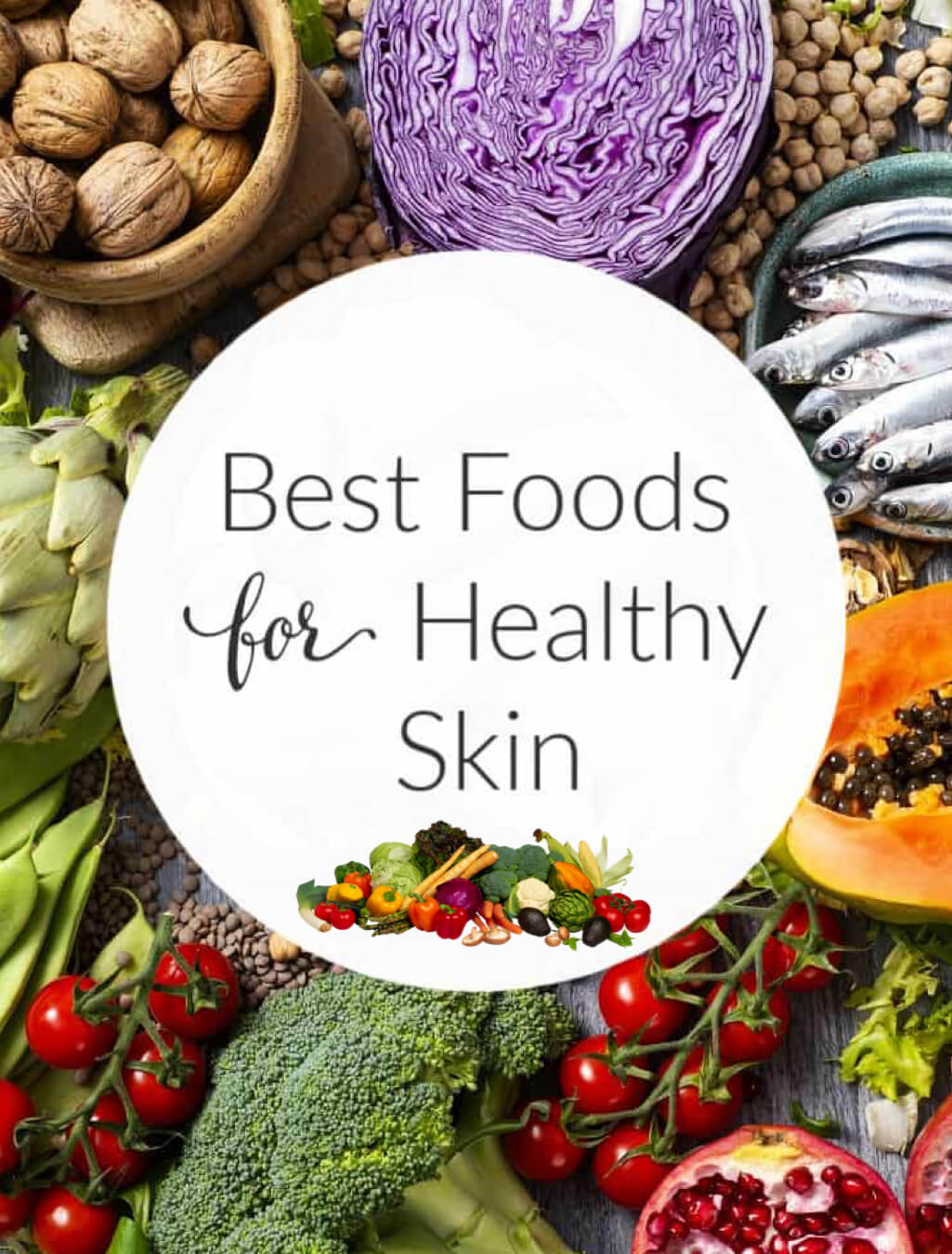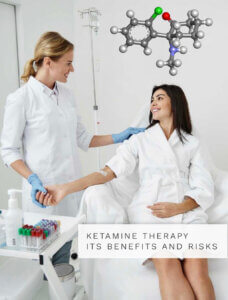Having healthy and glowing skin is a goal for many people. It not only enhances our appearance but also reflects our overall health and well-being. While following a proper skincare routine and protecting our skin from external factors are important, the role of nutrition and micronutrients should not be overlooked. In this comprehensive guide, we will explore the essential micronutrients for healthy skin, their benefits, and how to incorporate them into our diets.
The Importance of Micronutrients for Skin Health
Micronutrients are essential vitamins and minerals that our body needs in small quantities to function properly. They play a crucial role in maintaining the structure and function of our skin. Here are some of the key benefits of micronutrients for skin health:
Supporting cell growth and repair:
Micronutrients such as vitamins A, C, and E are involved in the production of collagen, a protein that helps maintain the elasticity and firmness of the skin. They also aid in the regeneration of skin cells, promoting a youthful and healthy appearance.
Regulating oil production:
Imbalances in oil production can lead to various skin issues, such as acne and oily skin. Micronutrients like vitamin A and zinc help regulate sebum production, keeping the skin balanced and reducing the risk of breakouts.
Reducing inflammation:
Inflammation is a common underlying factor in many skin conditions, including acne, eczema, and psoriasis. Micronutrients with anti-inflammatory properties, such as vitamins C and E, help calm inflammation and soothe irritated skin.
Protecting against UV damage:
Exposure to UV radiation can damage the skin and accelerate the aging process. Micronutrients like vitamins C and E act as antioxidants, neutralizing free radicals generated by UV radiation and reducing the risk of sunburn and premature aging.
Now that we understand the importance of micronutrients for skin health, let’s explore the 15 most essential vitamins and minerals for healthy and glowing skin.
Vitamin A: The Skin Rejuvenator
Vitamin A is a powerhouse nutrient when it comes to skin health. It promotes cell turnover, helps regulate sebum production, and supports the production of collagen and elastin. These properties make vitamin A effective in reducing the appearance of wrinkles, improving skin texture, and preventing acne.
Food Sources of Vitamin A
Carrots
Sweet potatoes
Spinach
Kale
Broccoli
Liver
Eggs
2. Vitamin C: The Antioxidant Booster
Vitamin C is well-known for its antioxidant properties. It protects the skin from free radical damage, stimulates collagen production, and brightens the complexion. Regular intake of vitamin C can improve skin elasticity, reduce hyperpigmentation, and promote a more youthful appearance.
Food Sources of Vitamin C
Citrus fruits (oranges, lemons, grapefruits)
Berries (strawberries, blueberries, raspberries)
Kiwi
Bell peppers
Broccoli
Brussels sprouts
3. Vitamin E: The Moisture Lock
Vitamin E is a potent antioxidant that protects the skin from oxidative stress and helps retain moisture. It is often used in skincare products for its moisturizing and healing properties. Regular consumption of vitamin E can improve skin hydration, reduce inflammation, and minimize the appearance of scars and fine lines.
Food Sources of Vitamin E
Almonds
Sunflower seeds
Spinach
Avocado
Olive oil
Wheat germ
4. Vitamin D: The Sunshine Vitamin
Vitamin D plays a crucial role in skin health. It helps regulate cell growth and differentiation, supports the immune system, and aids in wound healing. While our body can produce vitamin D when exposed to sunlight, it can also be obtained from dietary sources.
Food Sources of Vitamin D
Fatty fish (salmon, mackerel, sardines)
Cod liver oil
Egg yolks
Fortified dairy products
5. Vitamin K: The Dark Circle Fighter
Vitamin K is essential for maintaining healthy blood vessels and preventing bruising and dark circles under the eyes. It also has anti-inflammatory properties that can help reduce redness and irritation in the skin.
Food Sources of Vitamin K
Leafy green vegetables (kale, spinach, broccoli)
Brussels sprouts
Cabbage
Parsley
6. Biotin: The Beauty Vitamin
Biotin, also known as vitamin B7, is crucial for the growth and maintenance of healthy skin, hair, and nails. It supports the production of keratin, a protein that strengthens and protects the skin, hair, and nails.
Food Sources of Biotin
Eggs
Nuts (almonds, walnuts)
Seeds (sunflower seeds, chia seeds)
Sweet potatoes
Salmon
7. Niacin: The Skin Barrier Booster
Niacin, or vitamin B3, is essential for maintaining a healthy skin barrier. It improves the production of ceramides, which help keep the skin hydrated and protected. Niacin also has brightening properties, reducing hyperpigmentation and improving skin tone.
Food Sources of Niacin
Chicken breast
Tuna
Mushrooms
Peanuts
Green peas
8. Pantothenic Acid: The Acne Fighter
Pantothenic acid, or vitamin B5, helps regulate oil production in the skin, making it an effective nutrient in preventing acne breakouts. It also has anti-inflammatory properties that can reduce redness and irritation.
Food Sources of Pantothenic Acid
Avocado
Broccoli
Sunflower seeds
Lentils
Portobello mushrooms
9. Zinc: The Skin Healer
Zinc is involved in various cellular processes that are crucial for skin repair and growth. It has anti-inflammatory and antioxidant properties, reducing inflammation and protecting the skin from free radical damage.
Food Sources of Zinc
Oysters
Beef
Pumpkin seeds
Chickpeas
Cashews
10. Copper: The Collagen Booster
Copper is a mineral that plays a vital role in collagen synthesis, promoting skin elasticity and firmness. It also has antioxidant properties that protect the skin from free radicals.
Food Sources of Copper
Shellfish (oysters, lobster, crab)
Nuts (cashews, almonds, walnuts)
Seeds (sesame seeds, sunflower seeds)
Dark chocolate
Mushrooms
11. Selenium: The Skin Protector
Selenium is an antioxidant that protects the skin from oxidative stress and inflammation. It also supports the immune system, which is essential for maintaining healthy skin.
Food Sources of Selenium
Brazil nuts
Seafood (oysters, tuna, salmon)
Eggs
Whole grains (brown rice, oats, quinoa)
12. Iron: The Oxygen Booster
Iron is essential for oxygenating skin cells and promoting healthy blood flow. It also plays a role in collagen production, improving skin strength and elasticity.
Food Sources of Iron
Red meat
Poultry
Seafood (clams, mussels, oysters)
Legumes (lentils, chickpeas, kidney beans)
Spinach
13. Magnesium: The Inflammation Fighter
Magnesium has anti-inflammatory properties that can help reduce skin inflammation and treat conditions like eczema and psoriasis. It also helps regulate oil production, preventing acne breakouts.
Food Sources of Magnesium
Dark chocolate
Almonds
Spinach
Avocado
Banana
14. Manganese: The Antioxidant Powerhouse
Manganese is an antioxidant that protects the skin from free radicals and supports wound healing. It also has anti-inflammatory properties that can help reduce acne and skin redness.
Food Sources of Manganese
Pineapple
Whole grains (oats, brown rice, quinoa)
Nuts (almonds, pecans, walnuts)
Legumes (chickpeas, lentils, black beans)
15. Omega-3 Fatty Acids: The Skin Nourisher
Omega-3 fatty acids are essential fats that support overall skin health. They help reduce inflammation, improve skin hydration and texture, and protect the skin from UV damage.
Food Sources of Omega-3 Fatty Acids
Fatty fish (salmon, mackerel, sardines)
Chia seeds
Flaxseeds
Walnuts
Incorporating Micronutrients Into Your Diet
Now that we’ve explored the essential micronutrients for healthy skin, it’s important to know how to incorporate them into our diets. Here are some tips:
Eat a balanced diet:
Include a variety of fruits, vegetables, whole grains, lean proteins, and healthy fats in your meals. This will ensure you’re getting a wide range of micronutrients for optimal skin health.
Focus on nutrient-dense foods:
Choose foods that are rich in the micronutrients mentioned above. For example, opt for leafy greens, colorful fruits, and fatty fish.
Consider supplements:
If you’re unable to meet your daily micronutrient needs through diet alone, consult with a healthcare professional about taking supplements. They can help fill in any gaps in your nutrition.
Avoid excessive consumption:
While micronutrients are important for skin health, excessive intake can be harmful. Stick to recommended daily allowances and consult with a healthcare professional if you have any concerns.
Conclusion
Achieving healthy and glowing skin requires a holistic approach that includes skincare, lifestyle habits, and nutrition. The micronutrients discussed in this guide play a crucial role in maintaining skin health, promoting collagen production, reducing inflammation, and protecting against environmental damage. By incorporating these essential vitamins and minerals into your diet, you can support your skin from the inside out and enjoy a radiant complexion for years to come.
Remember, healthy skin is a reflection of overall well-being, so prioritize self-care, stay hydrated, get enough sleep, and manage stress levels. Embrace the power of micronutrients and watch your skin transform into its most beautiful and vibrant state.
Disclaimer: This article is for informational purposes only and should not be considered medical advice. Always consult with a healthcare professional before making any changes to your diet or skincare routine.
Ref:
https://www.forbes.com/health/body/best-vitamins-for-healthy-skin/
https://facecliniclondon.com/blog/vitamins-micronutrients-for-healthy-skin-health/









